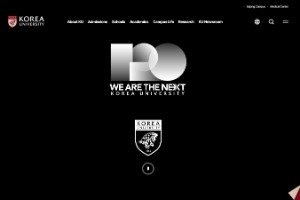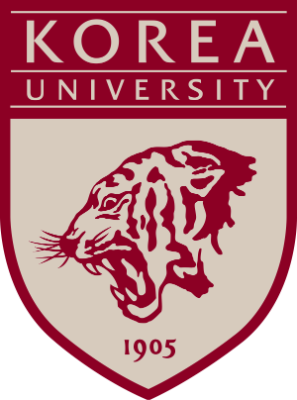Korea University
University Profile
Get a quick snapshot of the university's key details.
| Ranking |
2026
#61
2025
#4
|
|---|---|
| University Name | Korea University |
| Name in Local Language | 고려대학교 |
| Year Established | 1905 |
| Motto | 자유, 정의, 진리 |
| Motto in English | Liberty, Justice, and Truth |
| Governing Type | Private (Not for Profit) |
| Student Body | Co-education |
| Highest Degree | Doctorate |
| Campus Type | Urban |
| Colors | Crimson |
Location
The university is located in Seoul. Find the address and map of the university below.
| Address | 145 Anam-ro, Seongbuk-gu, Seoul, South Korea |
|---|---|
Contact
Connect with the university easily! Find their contact details.
| Phone | +82 (2) 3290 2963 |
|---|---|
| Website |

|
| Click here to send email | |
| More Links |
Admission Info
The admission process for Korea University is highly competitive and varies depending on the program. Undergraduate and international students apply through the Office of Admissions, with requirements including academic transcripts, recommendation letters, and a personal statement. Proof of language proficiency in English or Korean (e.g., TOEFL, IELTS, or TOPIK) is essential. Graduate applicants may need to submit research proposals and additional documents specific to their field of study.
| Accepts International Students | Yes |
|---|
Scholarship and Financial Aids
Korea University provides numerous scholarships to support its students, including international applicants. Merit-based scholarships are available for outstanding academic achievements, while need-based financial aid ensures accessibility for students from diverse backgrounds. International students can benefit from the Global KU Scholarship, which offers tuition discounts or full coverage. Additionally, government-funded scholarships such as the Korean Government Scholarship Program (KGSP) provide further opportunities for financial support.
Programs and Courses
Get a quick overview of programs and courses offered at this university.
| Bachelor's Degrees | Master's Degrees | Doctorate Degrees | Diplomas | |
|---|---|---|---|---|
| Arts & Humanities | n/a | n/a | ||
| Business & Social Sciences | n/a | n/a | ||
| Engineering | n/a | n/a | ||
| Language & Cultural Studies | n/a | n/a | ||
| Medicine & Health | n/a | |||
| Science & Technology | n/a | n/a |
Click on the following button to explore a detailed list of programs and courses of this institute.
View Course ListGlobal Ranking History
The following chart shows how the global ranking of this university has changed over the last 6 years.
Related Articles
Stay informed with the following articles related to the university or higher education in South Korea.

